Tuk Tuk Tours
Explore Bangkok by the iconic tuk tuk
And around the Golden Triangle
On your next visit to Northern Thailand, check out our suggestions here for 10 things to do in Chiang Rai. Hike mountain trails, admire Chiang Rai’s elaborate temples, and discover the cultural diversity of this fascinating area of Northern Thailand.
Read on to discover the best places to visit and the best things to do in Chiang Rai.
Note regarding COVID-19: While we do try to keep our content up to date, please be aware that due to the impact of COVID-19, restrictions may impact our recommendations, and businesses may temporarily or permanently close. Please double check.
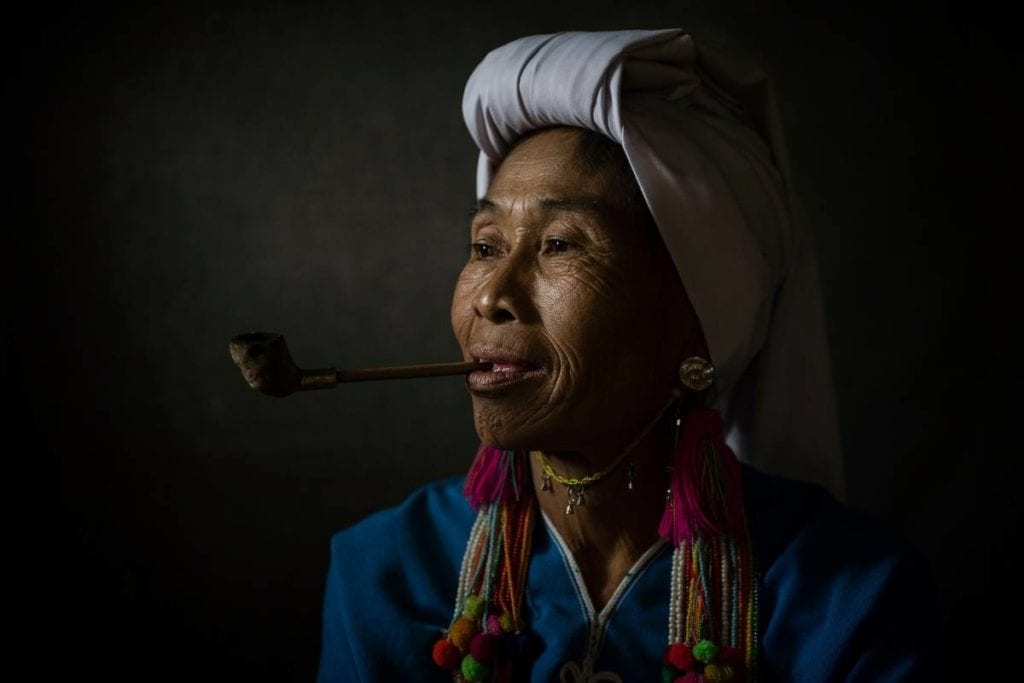
Trekking through Chiang Rai’s scenic mountain ranges is a popular activity for adventurous travellers. Travel with a local guide and learn about Chiang Rai’s hill-tribe communities including Akha, Karen and Lisu. A reputable local guide will be able to make sure your visit to different communities is culturally appropriate. If you would like to go trekking in Chiang Rai, visit the Hill-Tribe Museum first. The museum is an excellent place to learn more about the different communities from local experts. They can also help you find a guide if you want to go trekking in Chiang Rai.
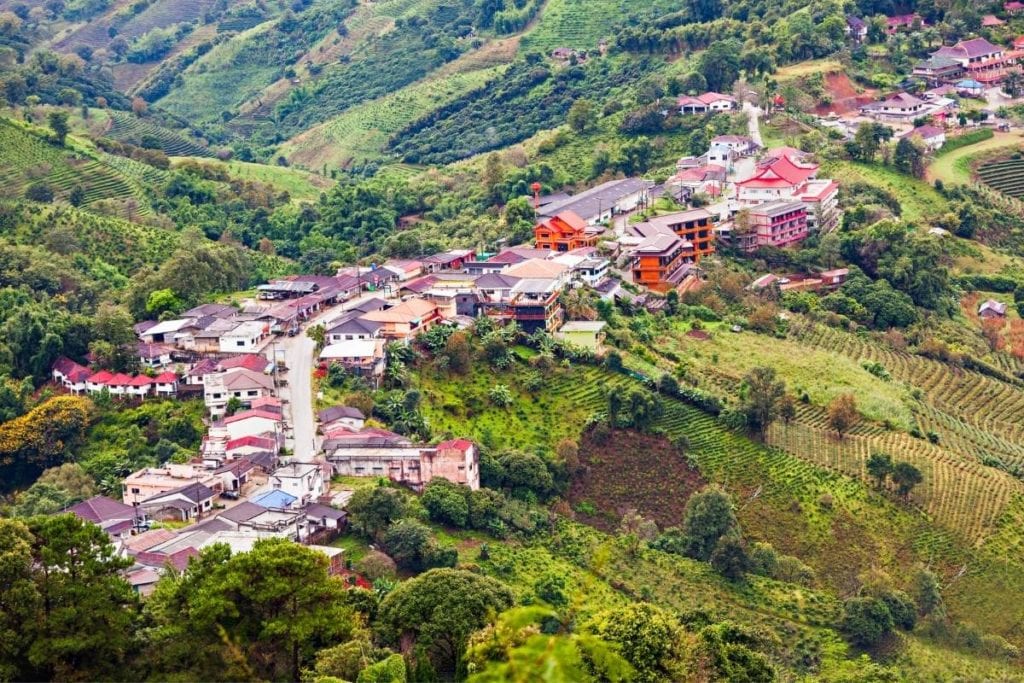
Situated in the scenic north-west corner of Chiang Rai province, Mae Salong (also known as Santikhiri) is famous for its mountainside tea plantations. Mae Salong is also famous for an unlikely group of immigrants who settled here.
In the fallout from the Chinese Civil War in the 1950s, soldiers from the defeated Kuomintang (KMT) fled China. Finding refuge in neighbouring countries including Burma and Thailand, some KMT soldiers became involved in the lucrative opium trade. At a time when the Thai government was fighting against communist insurgents in North Thailand, the KMT soldiers were offered a deal. In return for agreeing to fight against the insurgents and finish involvement in the illicit drug trade, the KMT fighters could have official citizenship and land in Thailand.
The land was at Mae Salong and the village was renamed Santikhiri, the ‘Hill of Peace’. Although many of the KMT soldiers have now passed away, their descendants continue to live in Santikhiri. The Chinese influence remains strong on the Hill of Peace where oolong tea has replaced opium.
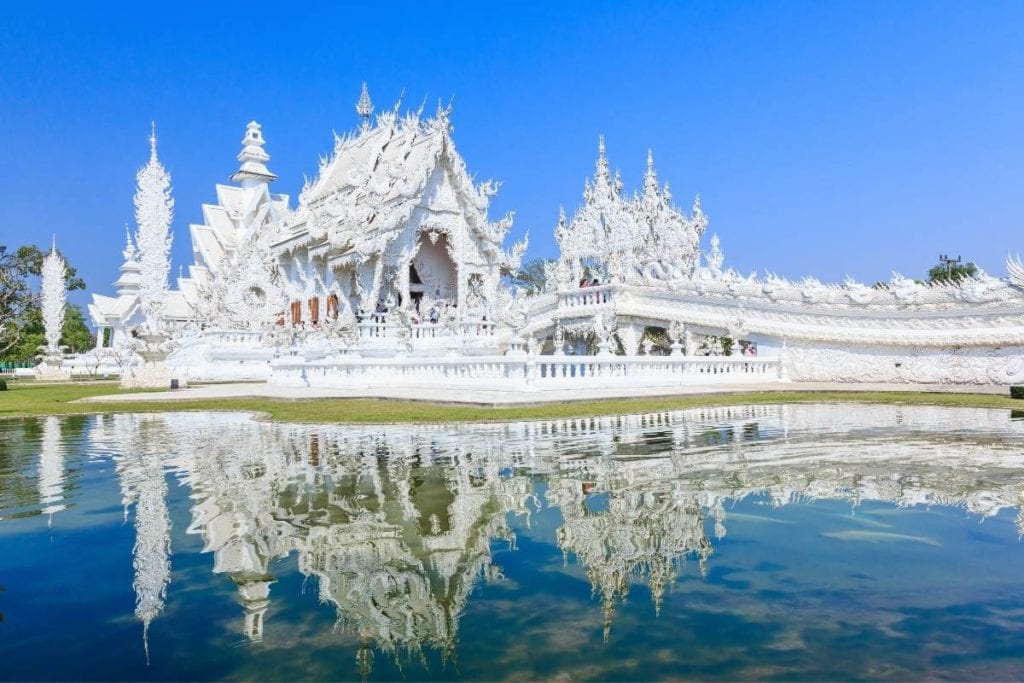
Wat Rong Khun is one of the most spectacular landmarks in Northern Thailand. Better known to overseas tourists as the White Temple, a visit here is one of the best things to do in Chiang Rai.
The White Temple is the creation of local artist, Chalermchai Kositpipat. Construction of the dazzling structure began in Chalermchai’s home village of Ban Rong Khun in 1997 and work continues to this day.
Wat Rong Khun incorporates elements of classic Thai temple architecture alongside striking contemporary additions. The dominant colour at Wat Rong Khun is white, but the addition of a number of gold coloured buildings provides a striking contrast. With lots of subtle artwork and some thought-provoking murals, Wat Rong Khun is a fascinating temple to visit.
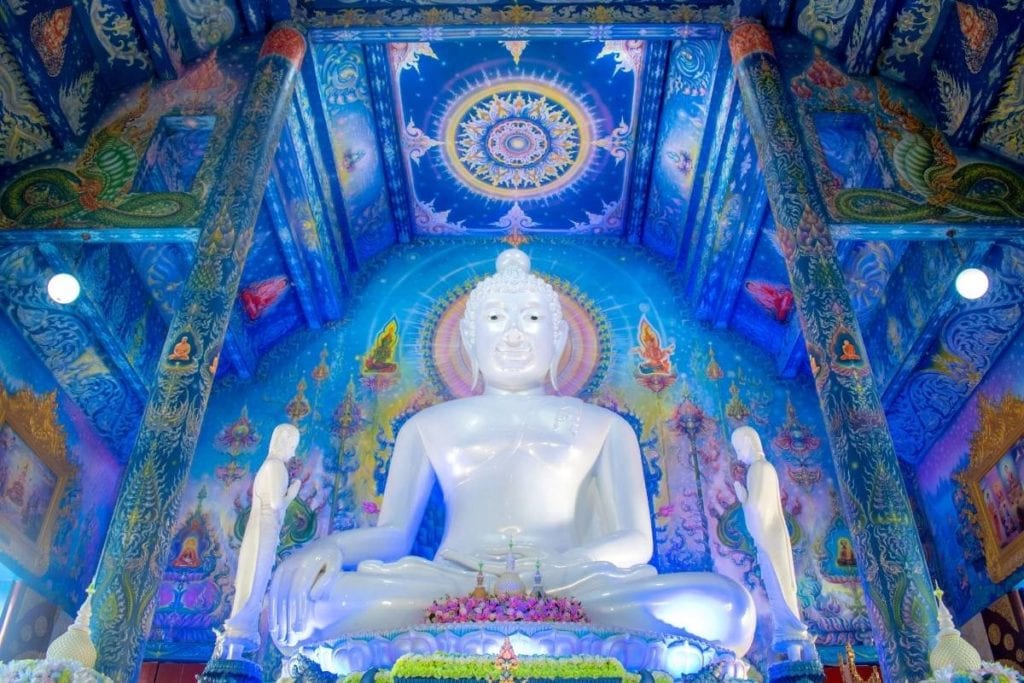
For another colourful temple in Chiang Rai, head to Wat Rong Seua Ten aka the Blue Temple. The artist credited with the design work here is a student of Chalermchai, the man behind the White Temple. Easy to reach from the city centre, a visit to the Blue Temple is one of the best things to do in Chiang Rai.
Wat Rong Seau Ten provides a contemporary alternative to the historic temples found elsewhere in the city. With imposing figures outside and splashes of blue in abundance, it’s one of the most photogenic temples in Thailand. The elaborate artwork continues inside the main viharn where a large white Buddha image sits elegantly in pride of place.
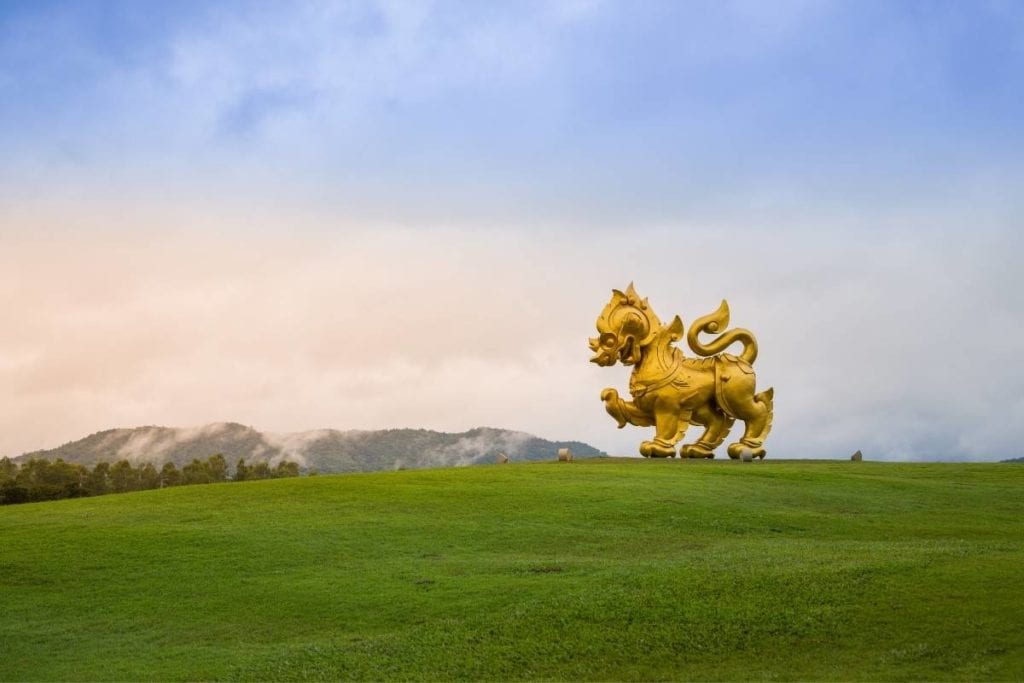
If you’re planning a trip to the White Temple (Wat Rong Khun), spend time too at nearby Singha Park. Explore the wide open spaces by bicycle or tram and enjoy the views of the Chiang Rai countryside. Parts of Singha Park are a working farm with tea plantations and orchards. Bring a reusable bag with you and you can pick your own fresh fruit and vegetables.
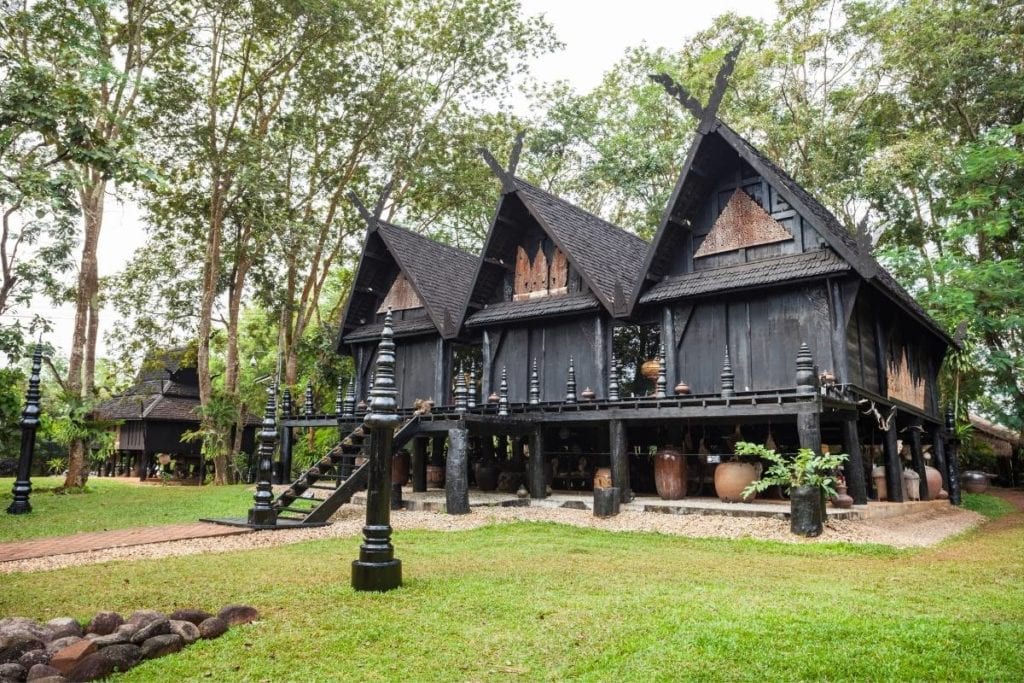
Sometimes mistakenly described as a temple, Baan Dam (Black House) is part art gallery and part museum. The collection of buildings here are the work of prominent Chiang Rai artist, Thawan Duchanee. He passed away in 2014, but Baan Dam remains a fitting legacy to his creative talents.
Thawan’s work is multifaceted. The thought-provoking Buddhist-inspired art he created depicts some gruesome images to portray death and human suffering. Baan Dam is certainly an interesting place to visit, but can divide opinion.
To see more work from local artists, visit Art Bridge Chiang Rai.
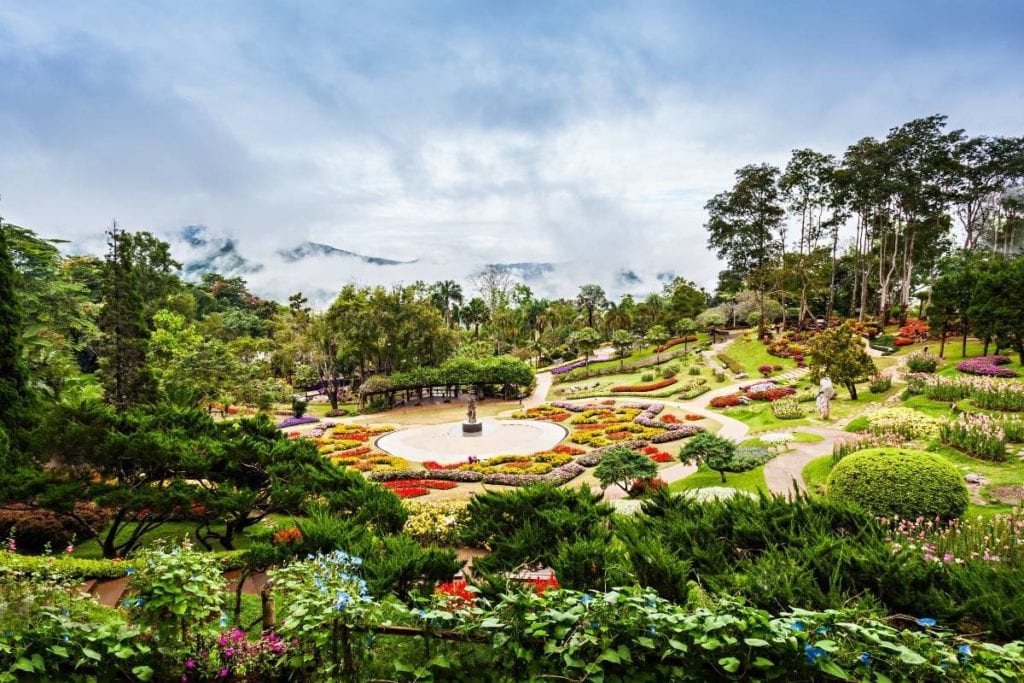
Travel into the mountains outside Chiang Rai city to enjoy the cooler climate and scenery at Doi Tung. The colourful Mae Fah Luang Gardens at Doi Tung are a delight to walk around.
Doi Tung has close connections with the Thai royal family. The mother of King Rama IX, HRH Princess Srinagarindra, built a villa here. The Thai royal was a frequent visitor to Chiang Rai and Doi Tung where she helped empower the hill-tribe communities. Throughout Thailand she was known affectionately as the Princess Mother. But the hill-tribe community used their own term of endearment for their royal guest who always arrived by helicopter. They called her, ‘Mae Fah Luang’, the ’Royal Mother from the Sky’. For more background on the Princess Mother and her work with hill-tribe communities, visit the informative Hall of Inspiration at Doi Tung.
The annual Colours of Doi Tung Festival is held in December and January. The enjoyable event celebrates hill-tribe culture and offers up an array of food and entertainment.
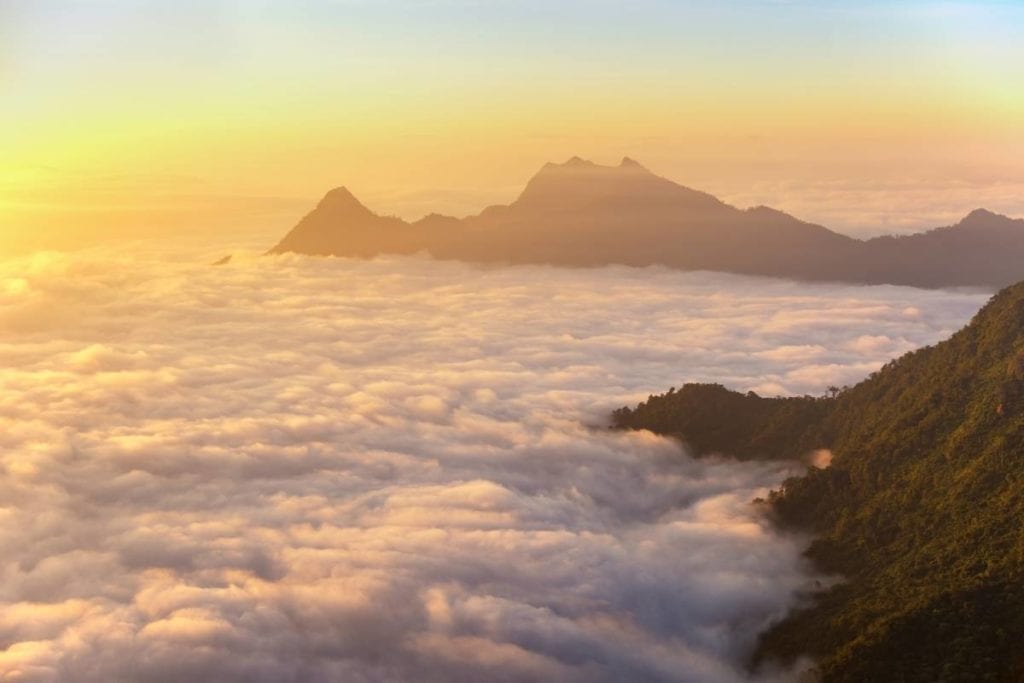
The viewpoint at Phu Chi Fah is a favourite spot for Thai tourists visiting Chiang Rai, but less well-known to international tourists. The highlight of a visit to Phu Chi Fah is camping overnight and waking early to see the spectacular sunrise over a sea of mist below. High up above sea level, temperatures at Phu Chi Fah are cold at night, especially during the cool season, so be sure to bring warm clothing with you.
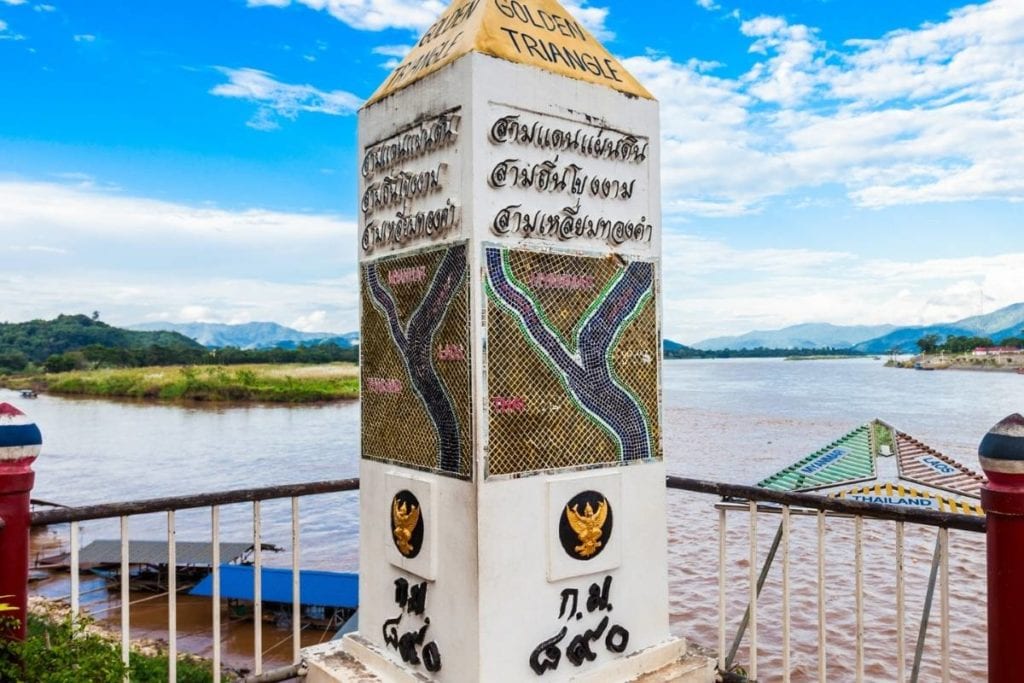
The Golden Triangle is the area in Chiang Rai province where the borders of three countries meet: Thailand, Myanmar and Laos. This porous border along the Mekong River was once infamous for the opium trade. However, coffee and tea now grow here instead of poppies. For insights into the more notorious aspects of the region’s history, visit the Hall of Opium Museum.
You can book a day tour of the Golden Triangle from Chiang Rai city, but it’s also a lovely area to explore independently. Stay a few nights in the charming and historic riverside town of Chiang Saen. Relax into the slow pace of life and hire a bicycle to take you around the quiet roads alongside the Mekong River and up to Sop Ruak.
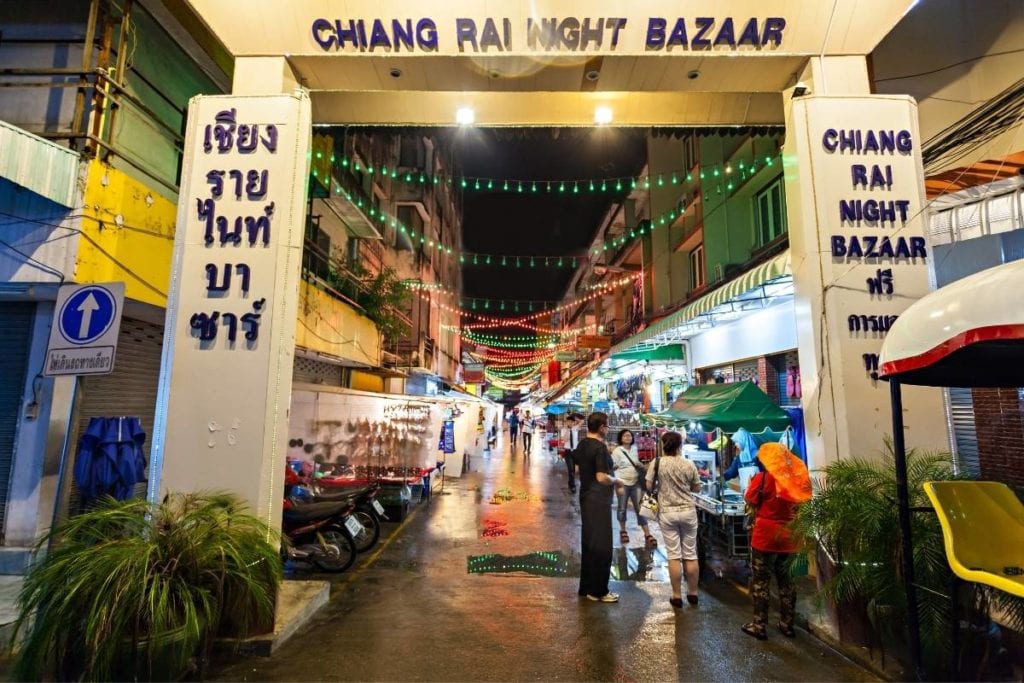
An evening at the Chiang Rai Night Bazaar is an ideal way to relax after a day of sightseeing. Shop for local arts, crafts and souvenirs. After you’ve finished shopping, sit down to enjoy the live music and fill up on cheap and tasty Thai food. You can sample many classic Northern Thai food dishes here including khao soi, sai ua, kap moo and nam prik ong.
A short stroll away from the Night Bazaar, the golden-coloured clocktower is worth a visit. Designed by the same artist who created the White Temple, the clocktower hosts an entertaining light and sound show each evening at 7pm, 8pm and 9pm.
At Expique our mission is to help people discover the real Bangkok (and beyond) and the local cultures. Our current focus is to provide the best content available to plan a trip and discover Thailand.
Prior to COVID-19 our focus was on offering a range of experiences in Bangkok including our award winning Bangkok Night Lights Tuk Tuk Tour.
For now however, our focus is on creating amazing content instead.
Subscribe to our newsletter to receive monthly news and tips about exploring Bangkok.